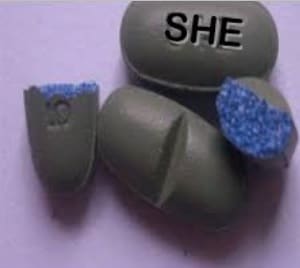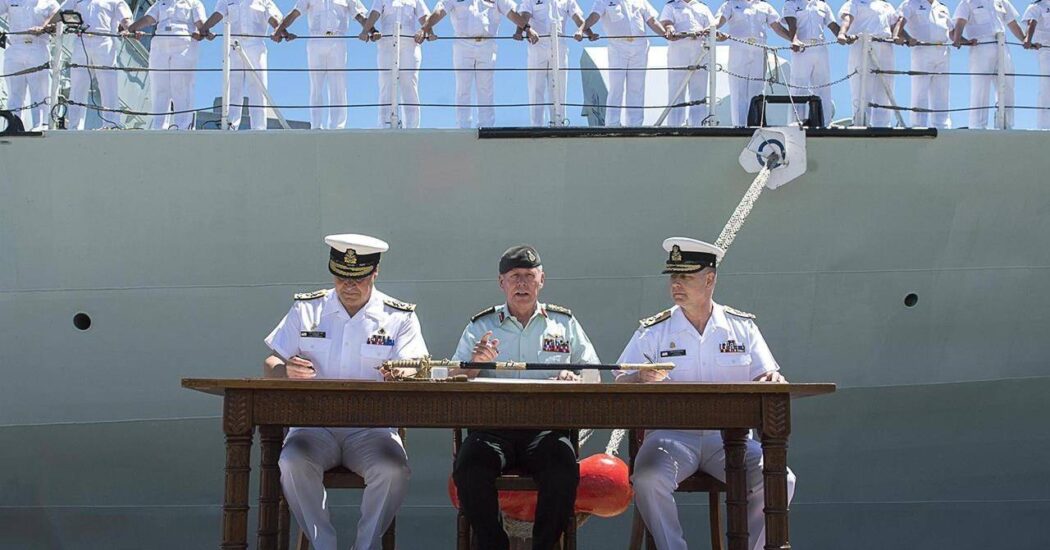
KJIPUKTUK (Halifax) – It turns out it’s not just university age women partying in bars who men-rapists drug with rohypnol. Military men also spike women’s drinks with the date-rape drug. Likely this ensures a woman’s memory of the night before, of whom she met, whom she talked to and her knowledge of who raped her would vanish.

The news on the Canadian military front sheds more light on the use of the date-rape drug inside the forces.
In 2010, Christine Wood joined the forces as an army reservist. Having had relatives in the military, it was her dream job. Eighteen months later, the day after a social function following a training course, she awoke in her bed with bloody sheets; she felt very sore and scared. When Wood went to the doctor on the base, he confirmed she had been raped and had caught a sexually transmitted infection. A test proved she had been drugged with rohypnol. She never found out the person or persons who raped her despite the military’s internal two-year investigation. The doctor on the base advised her to think carefully about whether the military was a good career option for her. He offered her a medical release from the forces because if she made a complaint, he thought she might suffer retaliation for the rest of her career.
When a woman makes a complaint of sexual assault in a workplace, retaliation can include any or all of the following: poor job evaluations, limited career options or no opportunity for promotion. Eventually, Wood left the military.

However it’s clear to almost everyone now, that the military does not just have “a few bad apples.” In 2015, Vance was appointed chief of defence staff following the airing of a damning report by former Supreme Court Justice Marie Deschamps that found sexual misconduct was rampant throughout the military. In response,Vance, presumably the white knight riding in to save the day, launched Operation Honour, which was supposed to expose misconduct and eliminate sexual misconduct in the military. As recently as Dec. 2020, Vance renamed Operation Honour, The Pathway to Dignity and Respect. The name change could be in response to an academic who suggested the idea of Operation Honour smacked of military culture, hierarchies and obedience.
The myth of a few bad apples…
Last month, Vance was put under investigation by the Canadian Forces National Investigative Service (NIS) after at least one woman came forward to say he had had an inappropriate sexual relationship with her for years. Kellie Brennan says she and Vance had an affair over nearly two decades, while he was serving in the military’s top job. At one point, when Brennan told Vance that she had been raped at CFB Wainwright, Alberta he refused to do anything about it—fearing that taking action would expose his own adulterous relationship with her. Vance was married. He also refused to recommend Brennan for a deserved promotion, saying that it would show the personal link between himself and her and it would arouse suspicion.
There is a separate allegation against Vance. In 2012, the top commander sent an email invitation to a junior woman. He wanted a rendez-vous at a clothing-optional (read: nude) beach vacation. Vance denies any sexual dalliance.
One wonders if the two complainants are just the tip of the iceberg. Vance recently retired as a four-star general.
Admiral accused of predatory behaviour
Just three weeks ago, Vance’s successor Admiral Art McDonald was forced to step down because he is being investigated for a 2010 allegation of sexual impropriety.
Scott Taylor is a retired Canadian soldier who is now a journalist, a documentary filmmaker and a war correspondent. In his syndicated column, he enumerated more sex scandals inside the military.
Just last week, this news exploded: In 2019, Vance promoted Vice-Admiral Haydn Edmundson to manage the Military Personnel Command. In this role, Edmundson is in charge of 14,000 military and civilian personnel in who supervise all human resource functions in the Canadian Armed Forces. This includes recruitment, training, promotion and firing. At least four reliable sources have cited Edmundson’s inappropriate conduct, including suggestive comments, unwanted sexual advances, predatory behaviour and relationships with female subordinates in the late 1990s. He was never charged, nor disciplined.
“The sources said it was “ironic” and “cringeworthy” that someone accused of inappropriate behaviour was put in charge of the directorate that provides advice on administering career consequences for those accused of sexual misconduct.”
Sexual assault in the military has a long history as Scott Taylor reminds us. In May 1998, Maclean’s magazine published four weekly cover stories detailing rape in the military. Public outrage from those revelations led to the creation of an ombudsman’s office.
Pulling rank to get sex
Also this just in— Lt.-Gen. Chris Coates will not be sent on a NATO posting after it was revealed that he had had an affair with an American civilian while on a NORAD posting. At the time of his NORAD affair, Coates was married. ThoughDepartment of National Defence officials confirmed the affair, they said Coates broke no Canadian rules. Said DND spokesman,
“These types of personal relationships are dealt with inside the respective national chain of command and subject to the nation of origin’s regulations on fraternization.”
DND Spokesman
Word from the DND (Dept of National Defence) is that it is about to create a new, more independent investigative service.Bad conduct from the top ranks of the military has been and is routinely covered up and excused. The military is prone to forgive because they focus on effective campaigns run by larger than life leaders, in a command-and-control context. That is the reason that sexual offences and serious personal transgressions should not be judged and tried by the military itself. Those charged with sexual and other offences should be tried by civilian courts — as are other offenders of this kind. Just as being a good plumber, or caring teacher does not excuse the person from charges of sexual assault, the same should apply in the military.
Judy Haiven is on the steering committee of Equity Watch, a Halifax-based organization which fights bullying, racism and discrimination in the workplace. You can reach her at equitywatchns@gmail.com
Check out our new community calendar!
With a special thanks to our generous donors who make publication of the Nova Scotia Advocate possible.
Subscribe to the Nova Scotia Advocate weekly digest and never miss an article again. It’s free!



